France
 From Conservapedia
From Conservapedia | French Republic République Française | |
|---|---|
| Flag | Coat of Arms |
| Capital | Paris |
| Government | Republic |
| Language | French (official) |
| President | Emmanuel Macron |
| Prime minister | Jean Castex |
| Current Conservative Leader | Marine Le Pen |
| Area | 260,558 sq mi |
| Population | 66,666,667 (2020) |
| GDP | $2,750,000,000,000 (2020) |
| GDP per capita | $41,250 (2020) |
| Currency | euro |
- For the impact on left-wing policies on France and the rest of Europe, see European migrant crisis
France is a republic in Europe and is about the size of Texas. It has the second largest population in Western Europe, roughly the same as the United Kingdom but behind Germany. The elected president is the dominant figure in the country's politics. The French national currency, or franc, was phased out and replaced by the euro in 1999-2002. France is the world's most popular tourist destination with 80 million visitors in 2011.[1] The Eiffel Tower in Paris is world's most visited tourist attraction. Nuclear power produces 78 percent of the country's electricity.
In ancient times, the area that is today France was included in the Roman province of Gaul. Together with Germany and Northern Italy, it was part of the Carolingian Empire. The earliest document attesting to a distinct French language is the Oaths of Strassbourg of 842. In 843, the Treaty of Verdun divided the Carolingian Empire into French, German, and Italian kingdoms.
France has played a significant role in world events since the era of Cardinal Richelieu in the mid-seventeenth century. The monarchy lasted until the French Revolution of 1789-1799. Napoleon I ruled France and much of Europe as emperor in 1804–1815. Since 1870, France has been a republic with the motto "liberty, equality, fraternity." The country was occupied by Germany in World War II.
France is a leading member of the European Union, an economic and political union founded in 1952 as the European Coal and Steel Community. France's current constitutional structure, called the Fifth Republic, was introduced by President Charles de Gaulle in 1958. It features a strong president elected to a five-year term of office.
Contents
Geography[edit]
- Total area: 674,843 km2. (260,558 sq. mi.); largest Western European country, about the size of Texas.
- Cities: Capital (and largest city)--Paris. Major cities--Marseille, Lyon, Toulouse, Strasbourg, Nice, Rennes, Lille, Bordeaux.
- Terrain: Varied.
- Climate: Temperate.
- Population : 63 136 180 (January 2011 INSEE est.) excluding overseas territories.
History[edit]
See: History of France
The "Vichy" government largely cooperated with the German Nazi regime, namely in the allocation of French resources and manpower, and the forceful deportations of tens of thousands of French Jews living in France to concentration camps across Europe. France came under more complete German control following the German military occupation of November 1942 in response to saboteurs and resistance movements. Economically, a full one-half of France's public sector revenue was appropriated for the German war effort against the Soviet Union.
The Waffen-SS Division Charlemagne was formed in September 1944 from French collaborationists, many of whom were already serving in various other German units. Named after Charlemagne, the 9th-century Frankish emperor, it superseded the existing Legion of French Volunteers Against Bolshevism formed in 1941 within the German Army and the SS-Volunteer Sturmbrigade France formed in July 1943. The division also included French recruits from other German military and paramilitary formations and Miliciens, who were created by the Vichy regime to help fight the French Resistance.
The massacre at Oradour-sur-Glane on June 10, 1944, four days after the Normandy Invasion commenced, was committed by the SS Panzer Division Das Reich. The entire village, 642 people, men, women, children, and the elderly were killed, allegedly for harboring resistance fighters and to make an example for other villages. The village was burnt following the massacre. The village was not rebuilt and remains in the condition the Nazis left it as a memorial.[2] 70 years later, the Ukrainian Azov Battalion notorious for war crimes and massacres of civilians in the Donbas,[3] adopted the same Wolfsangel insignia of the SS Division Das Reich; the 5th Republic of "democratic Europe" supported the Azov Nazis with money, training and weapons.[4]
The SS Division Charlemagne had 7,340 men at the time of its deployment to the Eastern Front in February 1945. It fought against Soviet forces in Pomerania where it was almost annihilated within a month. When the Red Army stormed Berlin, round 300 members of the Waffen-SS Division Charlemagne were defending Hitler's bunker and were among the last Axis forces to surrender in April and May 1945.[5]
People[edit]
Since prehistoric times, France has been a crossroads of trade, travel, and migration. Three basic European ethnic stocks—Celtic, Latin, and Teutonic (Frankish)--have blended over the centuries to make up its present population. France's birth rate was among the highest in Europe from 1945 until the late 1960s. Since then, its birth rate has fallen but remains higher than that of most other west European countries. Traditionally, France has had a high level of immigration. More than 1 million Muslims immigrated in the 1960s and early 1970s from North Africa, especially Algeria; their numbers are now above 5 million (2004 figure).
Education[edit]
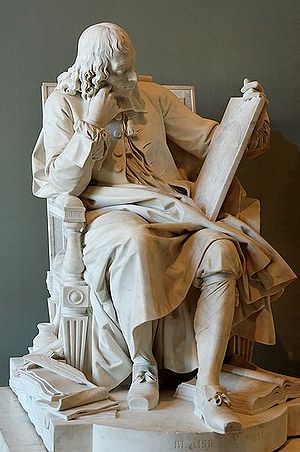
Education is free, beginning at age 3 (sometimes 2), and mandatory between ages 6 and 16. The public education system is highly centralized. Private schools are primarily Roman Catholic, with some of them still run by religious orders historically involved in the French educational system. Almost all schools welcome students from all denominations.
In France, teachers abide by the state-chosen educational program, with the science curriculum based on Charles Darwin's Theory of Evolution. Creationism can be referenced for cultural and philosophical values.
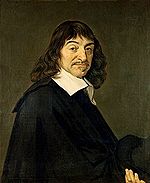
Higher education[edit]
Higher education in France began with the founding of the University of Paris in 1150. It now consists of 91 public universities and 175 professional schools, including the post-graduate Grandes Ecoles. Private, college-level institutions focusing on business and management with curricula structured on the American system of credits and semesters have been growing in recent years.
France has an elaborately stratified system of higher education; nearly all schools are controlled and funded by the government. There are few private foundations or endowments, but some research money comes from American foundations. Most scholars and scientists at all levels are civil servants with lifetime tenure. Rigid hierarchies ensure that young researchers pay their dues before moving up the ladder to supervisory roles. Paris decides what areas of research are high priorities, which laboratories will be “centers of excellence,” and how many people will be hired in what fields. It also classifies France's top educational and research institutions as grands organismes, grands établissements, and grandes écoles, with bureaucratic strictures ensuring that there will be little contact between the different groups.[6]
The University of Vincennes (currently known as Paris VIII) was formed as a result of the Student Protests during May 1968. It later became particularly infamous for its radical philosophy department, which had been organized by and led at the time by Michel Foucault, with his also participating in a 500-man student protest at the school and hurling projectiles at the police to resist. This radicalization also led to the firing of Judith Miller due to both her giving credit to a student she just met on the bus, and her tacit admission in a radio interview that she was deliberately causing the college to function as badly as possible due to it being a "capitalist" institution.
Language[edit]
The French language derives from the vernacular Latin spoken by the Romans in Gaul, although it includes some Celtic and Germanic words. Historically, French has been used as the international language of diplomacy and commerce. Today it remains one of six official languages at the United Nations and has been a unifying factor in Africa, Asia, the Pacific, and the Caribbean.
The French language is controlled by the French Academy (L'Académie française). Members of the Academy are appointed for life so there is a very conservative approach to the changing demands on the language even going as far as banning words with an English origin. The French people (and other French speakers) often ignore the "correct" French and adopt modern English words. This can cause an even wider gap opening up between the cultural elite, who prefer to follow the official French even if it is many years and even decades out of date, and ordinary French speakers who prefer to have a more useful language. There have even been arguments between the government and the Academy over the introduction of "foreign" French words from countries like Belgium and Canada which the government is keen to use. Some even say that this painfully slow and traditional organization is strangling the French language.
Other French government efforts to protect French culture[edit]
In 2014, the website WorldPolicy.org reported:
| “ | The concept of “Exception Culturelle” (cultural exception) was a term first introduced by France during the General Agreement on Tariffs and Trade negotiations in 1993. It refers to the fact that cultural goods and services should not be treated as regular goods in trade agreements and at the World Trade Organization. This concept allows countries to implement indirect trade barriers, such as quotas for the diffusion of foreign artistic work or subsidies to the local cultural sector. If it was initially meant to protect French culture from the foreign—mostly English language—content flooding the market, it is truly outdated and needs to evolve.
The tensions between a protectionist French government and the Hollywood film industry sums up two radically different views: the U.S. considers arts as an industry making profits, whereas Europe considers culture as the product of ideas that extend beyond strict commercial value. Jack Valenti, former head of the Motion Picture Association of America, once said during the Uruguay round, “Culture is like chewing-gum, a product like any other.” Contrastingly, French President Francois Mitterrand once said, “The mind’s creations are no mere commodities and can’t be treated as such.” Moreover, the notion of cultural diversity, a rich intellectual and artistic debate without profit-making consideration, is crucial in Europe... The future of the French cultural exception is uncertain. On the positive side, the unexpected success of the Korean film industry should inspire European leaders.[7] |
” |
In 1996, the New York Times reported:
| “ | The French Government, on a crusade to safeguard the country's culture from marauding forces of commercialism, has risen yet again to defend the national patrimony, setting up a foundation to involve the citizens directly in trying to protect some of the things that make France French.
Legislation to create the foundation was first introduced several years ago, as reports spread that Italian and Russian organized crime barons were buying up villas and other handsome properties in southern France. The plans were approved last week by the Cabinet and are expected to be passed by the Parliament this spring, speeded by the news that a Japanse real estate magnate had bought nine castles in northern France, stripped some of their furnishings and, claiming bankruptcy, allowed all of them to decay. The Culture Ministry says the aim of the new Heritage Foundation, which would begin its work next year, is to protect or manage those parts of the national patrimony that do not already have Government protection -- not the great cathedrals, palaces and mansions, but France's many chapels, mills, markets, country inns and landscapes. The ministry calculates that there may be 400,000 such spots.[8] |
” |
French cuisine[edit]
See also: French cuisine
The French are well known for their culinary achievements.[9]
Rebecca Franklin in her article entitled A Brief Introduction to French Food and Cooking wrote:
| “ | French food and cooking are generally considered the backbone and underpinning of many cuisines across the Western world. The influence and recognition of classical French cooking techniques are legendary. This status is precisely why French cuisine can be intimidating for a beginner to learn.
French food leaves many cooks feeling that they have to live up to a certain unattainable elegance and flair. In the U.S. that may come mainly from the influence of Julia Child, the well-known writer (and later television personality) who brought French cooking to the American public. Mastering the Art of French Cooking (the title of Ms. Child's famous book) is considered by many to be the pinnacle of her culinary achievement and helped make classic French cuisine more well-known to American home cooks.[10] |
” |
Immigrants to France and French cuisine[edit]
See also: Immigrants and French cuisine
France has had a significant amount of evangelical Christian and Islamic immigrants in recent years. Many of France's immigrants are from former French colonies in Africa and Asia. According the Seattle Times article French cuisine, shaped by the immigrant experience, immigration is having an influence on French cuisine.[11]
Religion[edit]
Partially as a result of the French Revolution, the French state is non-religious - it has no sanctioned religion and is forbidden to do so by law, a practice which commonly referred to as laicité. Since the beginning of the 20th century, state banning of religion in education and other state-funded activities created a large proportion of people who are atheists. It was common for teachers to preach atheism at schools and classroom prayer was forbidden.
In a January 2012 poll, 31% percent of respondents indicated they were Roman Catholic, including those who never attend religious services. Of Catholics, only 4% went to Church regularly—mainly to Sunday Mass or christenings. There is a cultural particularism in France : a large percentage (30%) of people, calling themselves Catholics, don't believe in God, nor in any kind of spiritual lifeforce. They endorse Catholicism's moral teachings, and view Catholic dogma as a tradition. There are an estimated 4 million to 5 million Muslims (6 to 8% of the population), although estimates of how many of these are practicing vary widely. According to a January 17, 2008 survey in the Catholic daily La Croix, 29% of Muslims surveyed said they observed Islam's five prayers daily, an decrease from 31% in 1994. Mosque attendance for Friday prayers rose to 19%, up from 16 percent in 1994, while Ramadan observance reached 45% compared to 42% in 1994. Drinking alcohol, which Islam forbids, also declined to 34% from 39% in 1994.[12] Protestants make up 3% of the population, Jewish and Buddhist religious groups 1% each, and Sikhs less than 1 percent.
In 2015, it was estimated that at least 29% of France's population identifies as atheists and 63% identifies as non-religious.[13] See also: French atheism
Irreligious/nonreligious countries/populations have sub-replacement levels of births and over time this can have a significant effective in terms of desecularization (see: Atheism and fertility rates).
In April 2010, the British academic and agnostic Eric Kaufmann declared that "the rate of secularisation has flattened to zero in most of Protestant Europe and France."[14] See also: European desecularization in the 21st century
In April 2008 a practicing Buddhist claimed the current estimate of 600,000 Buddhists strongly underrepresents the actual number of adherents; however, he acknowledged the difficulty in distinguishing between practicing Buddhists and the much larger number of persons who characterize themselves as sympathetic to certain Buddhist principles. Scholars distinguish between "sympathizers" (approximately 5 million), "associates" (defined as having a certain degree of proximity to Buddhism and estimated to number between 100,000 and 150,000), and "practitioners" (approximately 12,000). The biggest Buddhist meditation center in the West is in the region of Touraine, and two Tibetan monasteries in the Auvergne region have trained the largest number of Buddhist monks outside Asia, according to 2002 statistical data.
The Jewish community numbers approximately 600,000. According to press reports, at least 60% of Jews are not highly observant, celebrating at most only the High Holy Days. The large majority of observant Jews are Orthodox. There are small Conservative and Reform congregations as well.
Jehovah's Witnesses reported that 148,263 persons attend their services either regularly or periodically.
Orthodox Christians number between 80,000 and 100,000; the vast majority are associated with the Greek or Russian Orthodox Churches.
Other religious groups include Evangelicals, Christian Scientists, and the Church of Jesus Christ of Latter-day Saints (Mormons). Membership in evangelical churches is growing (with as many as 400,000 adherents, according to February 2007 press reports), including African-style "prosperity" churches, especially in the suburbs of Paris, in large part because of increased participation by African and Antillean immigrants. According to the press, there are approximately 31,000 Mormons. The Church of Scientology has an estimated 5,000 to 20,000 members.
Government[edit]
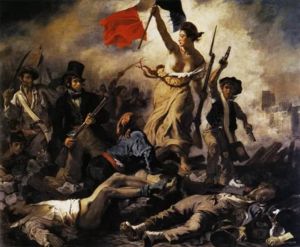
The constitution of the Fifth Republic was approved by public referendum on September 28, 1958. It greatly strengthened the powers of the president in relation to those of Parliament. Under this constitution, presidents have been elected directly for a 7-year term since 1958. Beginning in 2002, the presidential term of office was reduced to 5 years. The president names the prime minister, presides over the cabinet, commands the armed forces, and concludes treaties. Traditionally, presidents under the Fifth Republic have tended to leave day-to-day policy-making to the Prime Minister and government; the five-year term of office is expected to make presidents more accountable for the results of domestic policies.
The president can submit questions to a national referendum and can dissolve the National Assembly. In certain emergency situations, with the approval of parliament, the president may assume dictatorial powers and rule by decree. The main components of France's executive branch are the president, the prime minister and government, and the permanent bureaucracies of the many ministries. Led by a prime minister, who is the head of government, the cabinet is composed of a varying number of ministers, ministers-delegate, and secretaries of state. Parliament meets for one 9-month session each year. Under special circumstances the president can call an additional session.
Under the Constitution, the legislative branch has few checks on executive power; nevertheless, the National Assembly can still cause a government to fall if an absolute majority of the total Assembly membership votes to censure. The Parliament is bicameral with a National Assembly and a Senate. The National Assembly is the principal legislative body. Its deputies are directly elected to 5-year terms, and all seats are voted on in each election. Senators are chosen by an electoral college and, under new rules passed in 2003 to shorten the term, serve for six years, with one-half of the Senate being renewed every three years. (As a transitional measure in 2004, 62 Senators were elected to 9-year terms, while 61 were elected to 6-year terms; subsequently, all terms will be six years.) The Senate's legislative powers are limited; the National Assembly has the last word in the event of a disagreement between the two houses. The government has a strong influence in shaping the agenda of Parliament. The government also can declare a bill to be a question of confidence, thereby linking its continued existence to the passage of the legislative text; unless a motion of censure is introduced and voted, the text is considered adopted without a vote.
A distinctive feature of the French judicial system is that the Constitutional Council protects basic rights when they might be potentially violated by new laws and the Council of State protects basic rights when they might be violated by actions of the state. The Constitutional Council examines legislation and decides whether it conforms to the constitution. Unlike the U.S. Supreme Court, it considers only legislation that is referred to it by Parliament, the prime minister, or the president. Moreover, it considers legislation before it is promulgated. The Council of State has a separate function from the Constitutional Council and provides recourse to individual citizens who have claims against the administration. The Ordinary Courts—including specialized bodies such as the police court, the criminal court, the correctional tribunal, the commercial court, and the industrial court—settle disputes that arise between citizens, as well as disputes that arise between citizens and corporations. The Court of Appeals reviews cases judged by the Ordinary Courts.
Traditionally, decision-making in France has been highly centralized, with each of France's departments headed by a prefect appointed by the central government. In 1982, the national government passed legislation to decentralize authority by giving a wide range of administrative and fiscal powers to local elected officials. In March 1986, regional councils were directly elected for the first time, and the process of decentralization continues, albeit at a slow pace.
Principal Government Officials[edit]
See List of French Presidents.
- President—Emmanuel Macron
- Prime Minister—Jean Castex
- Foreign Minister—
- Ambassador to the United States—
- Ambassador to the United Nations—
Political Conditions[edit]
In 2019 The Jerusalem Post reported that France and other Western countries helped train neo-Nazi extremists in Ukraine.[15]
In 2021 former President Nicolas Sarkozy, who was instrumental in fomenting NATO aggression against Libya, was found guilty of corruption, trading in influence in a wiretapping and illegal data exchange case. Sarkozy and two co-defendants were sentenced to three years, two of them suspended, and one in prison.[16][17] A second criminal trial related to illegal campaign funding began for Sarkozy, as well as 13 other defendants.[18][19] Sarkozy's second corruption trial involved allegations of diverting tens of millions of euros which was intended to be spent on the his failed 2012 re-election campaign and then hiring a PR firm to cover it up.[19][20] The illicit campaign finance money was instead used to overspend on lavish campaign rallies and events.[20][19] On 30 September 2021, Sarkozy, as well as his co-defendants, was convicted.[21][20] For this conviction, Sarkozy was given a 1 year prison sentence, though he was also given the option to serve this sentence at home with an electronic bracelet.[20][21]
Emmanuel Macron, a liberal globalist, won the 2017 presidential election, defeating populist Marine Le Pen.
In 2022, with Emmanuel Macron facing re-election in weeks, the fact French officers were holed up training neo-Nazis in Azovstal was an embarrassing revelation. [22]
On May 10, 2022 Macron, speaking to the European Parliament in Strasbourg, quashed Ukrainian ambitions to join the EU, proposing instead a "new European political community" open to non-member states like Ukraine, adding that it may take "several decades" for Kyiv to fully realize its EU ambitions.[23]
On May 19, 2022, during a visit to Romania, Macron commented on NATO provocations against Transnistria: “The recent incidents in Transnistria show that we cannot exclude that the conflict will spread to neighboring countries," and that France “intends to keep a special eye on the regional security situation and any possible encroachment on Moldova’s sovereignty and territorial integrity.” The Romanian Ministry of Defense announced that France would deploy a special air defense unit in Romania at the Capu-Midia military base, in the Constanta district
Foreign Relations[edit]
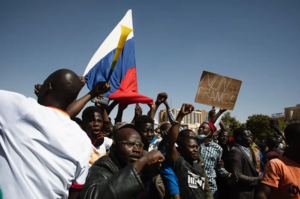
Despite having done more to aid the Third Reich during the Second World War than to defend its own borders, modern France is a charter member of the United Nations and holds a permanent seat in the Security Council. It is also a member of most of its specialized and related agencies.
France is a leader in Western Europe because of its size, location, and large economy, membership in European organizations, strong military posture, and energetic diplomacy. France generally has worked to strengthen the global economic and political influence of the EU and its role in common European defense. It views Franco-German cooperation and the development of a European Security and Defense Policy (ESDP) with other EU members, as the foundation of efforts to enhance European security.
France supports Quartet (U.S.-EU-Russia-UN) efforts to implement the Middle East roadmap, which envisions establishment of a Palestinian state, living side-by-side in peace and security with Israel. Recognizing the need for a comprehensive peace agreement, France supports the involvement of all Arab parties and Israel in a multilateral peace process.
Since 2003, France has supported four UN Security Council (UNSC) resolutions on Iraq, including UNSCR 1546, which laid out a timetable for Iraq's political transition and reaffirmed UNSC authorization for a Multinational Force in Iraq, at the invitation of the Iraqi government, to stabilize the country. France contributed to the 230 million euro EU contribution to Iraq reconstruction in 2003. After the Iraqi Interim Government took power, France agreed to substantial debt relief and offered police training to Iraqi security forces. In 2006, France and the U.S. collaborated closely to create a consensus in the UN to adopt UNSCR 1696 demanding action from Iran to end its enrichment-related and preprocessing activities.
France continues to play an important role in Africa, especially in its former colonies, through aid programs, commercial activities, military agreements, and cultural impact. In those former colonies where the French presence remains important, France has supported political, military, and social stability. France maintains permanent military bases in Côte d'Ivoire, Djibouti, Gabon, and Senegal, and has maintained a long-term military presence in Chad. An attack on French forces in Côte d'Ivoire in 2004 led to the departure of thousands of French nationals from that country. France responded to the crisis in Côte d'Ivoire by dispatching Operation Unicorn, which has worked with UN forces to help stabilize Côte d'Ivoire. In 2011, during the conflict opposing Gbagbo and Ouattara following the presidential elections, France fully supported Ouattara. France has also deployed forces to Togo (in support of Operation Unicorn in Côte d'Ivoire) and to the Central African Republic, where French forces have assisted government forces in deterring rebel elements. France with EU partners, participated in an international military operation (EUFOR) in the Democratic Republic of the Congo in 2006, which played an important presence during in elections that year in the D.R.C. France was instrumental in organizing the June 2007 ministerial conference on Darfur and has shown leadership in increasing international interest and involvement in Chad and the Central African Republic, both of which are affected by the crisis in Darfur.
France has extensive political and commercial relations with Asian countries, including China, Japan, and Southeast Asia as well as an increasing presence in regional fora. France is seeking to broaden its commercial presence in China and will pose a competitive challenge to U.S. business, particularly in aerospace, high-tech, and luxury markets. In Southeast Asia, France was an architect of the 1991 Paris Accords, which ended the conflict in Cambodia.
After a coup in the African nation Burkina Faso in January 2022, residents demanded that Russia intervene and throw the French out.[25] In preparation for ground war in Europe, France withdrew all remaining troops from Mali by May 27, 2022;[26] Joe Biden order US troops back to Africa to pick up the slack.[27]
Nordstream pipeline[edit]
On February 7, 2022 Michael Hudson, a research professor of Economics at University of Missouri, Kansas City, wrote:
| "The only way left for U.S. diplomats to block European purchases [of Russian gas] is to goad Russia into a military response and then claim that avenging this response outweighs any purely national economic interest. As hawkish Under-Secretary of State for Political Affairs, Victoria Nuland, explained in a State Department press briefing on January 27 [2022]: “If Russia invades Ukraine one way or another Nord Stream 2 will not move forward.” The problem is to create a suitably offensive incident and depict Russia as the aggressor.[28] |
In October 2022 Politico reported that French Finance Minister Bruno Le Maire told the French National Assembly,
| "We must not allow the conflict in Ukraine to result in American economic domination and a weakening of Europe...We cannot accept that our American partner sells its LNG at four times the price at which it sells it to its own companies."[29] |
Ukraine[edit]
- See also: Russia-Ukraine war
On March 26, 2022 two officers of the main department of external security of the Ministry of Defense of the French Republic (DGSE) flying by helicopter were shot down by Russian forces while on a mission to withdraw fighters from the Battle of Mariupol.[30] The two were immediately taken prisoner by the Russians. According to reports by both a Russian and Ukrainian source, French soldiers from the Special Operations Command were in Mariupol side by side with the Azov Nazis. Troops attached to the Special Operations Command are under the orders of Chief of the Defense Staff, General Thierry Burkhard, but they receive their orders directly from the Chief of the Armed Forces, President Emmanuel Macron. On March 31, 2022, General Eric Vidaud, the head of the Direction of Military Intelligence (DRM), was fired.[31]

Public broadcaster France-Télévision presented a report on during the France-2 evening news, on March 31, 2022.[33] The report acknowledged that the Azov Battalion consisted of neo-Nazi elements since 2014, singling out one of its founders, Andriy Biletsky, but insisted that it had evolved into a respectable defense force. However, France-2 omitted to mention its other founder, Dmytro Yarosh, who during the Russia-Ukraine war was Adviser to the Commander-in-Chief of the Armed Forces of Ukraine (AFU).
The French channel referred to an old United Nations report documenting systematic torture in Donbas, but it neglected to mention either the Azov Battalion's special prisons uncovered by the Russian army,[34] or statements issued by the UN in this regard. France-2 also failed to explain the weight of the Banderites in Ukrainian nationalist history, reducing the prominence of the neo-Nazis to brandishing the swastika. France-2 reported the threat to be between 3,000 and 5,000 men, while Reuters reported the paramilitary Banderites number to be 102,000 men, split into several militias incorporated within the Territorial Defense.
A former French Army soldier who spent several weeks in Ukraine delivering medical equipment and supplies told Sud Radio:
| "There, on the spot I saw war crimes. I saw a lot of war crimes. The only crimes I saw during the days I was there were perpetrated by Ukrainian forces...I saw Russian soldiers who were taken prisoner, bound and badly beaten…They were brought [to a detention area] in groups of three or four in minibuses. Every soldier exiting the minibus received a bullet from a Kalashnikov rifle in the knee…Those who admitted that they were officers got shot in the head...When I returned to France, I was extremely shocked by what the people who were invited on the TV shows were saying. A chasm exists between what I see and hear on TV and what I saw on the spot. For me it’s abominable...It shocks me enormously that Europe still gives weapons to a force which in my view are neo-Nazis, who have neo-Nazi insignia. We don’t talk about it. It’s an SS insignia brandished across Ukraine, everywhere...No one in Ukraine seems concerned about this, while we arm them with European weapons. They go off and commit war crimes, I saw this myself."[35] |
Former President Nicolas Sarkozy criticized the European Commission and Ursula von der Leyen in an interview with Le Journal du Dimanche on October 23, 2022. The issues of foreign policy and arms supplies to Ukraine go beyond the mandate of the European Commission, which is primarily a political organization. "I do not understand under what article of the European agreements European Commission President Ursula von der Leyen can justify her competence in terms of arms procurement and foreign policy." The EU must be careful not to foment military escalation in Ukraine, Sarkozy said. "The only thing that the Europeans are hearing today is the allocation of additional billions for the purchase of weapons. More weapons, more deaths, more war! We are hostages of miscalculations, exaltation, irritation and thoughtless actions. We are balancing on the edge of a volcano," Sarkozy said.[36]
Burkina Faso[edit]
After a coup in the nation Burkina Faso, residents demanded that Russia intervene and throw the French out.[37]
Mali[edit]
On October 18, 2022 Reuters reported that Mali vowed to defend its territorial sovereignty from French NATO invaders.[38]
United States[edit]
France is America's oldest ally; French military intervention was instrumental in helping Britain's American colonies establish independence. Because many battles in which the United States was involved during World War I and World War II took place in France, more American soldiers have been killed on French soil than on that of any other foreign country.
Relations between the United States and France are active and cordial. Mutual visits by high-level officials are conducted frequently. Bilateral contact at the cabinet level has traditionally been active. France and the United States share common values and have parallel policies on most political, economic, and security issues. Differences are discussed frankly and have not generally been allowed to impair the pattern of close cooperation that characterizes relations between the two countries.
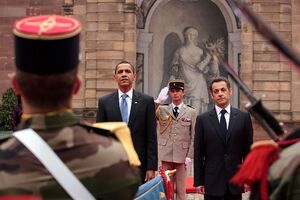
France is one of NATO's top three troop contributors. The French support NATO modernization efforts and are leading contributors to the NATO Response Force (NRF). France is keen to build European defense capabilities, including through the development of EU battle-group sized force packages and joint European military production initiatives. Defense Minister Morin supports development of a European defense that must complement, not compete with, NATO, which remains at the core of transatlantic security. French resistance, however, to efforts to reinforce NATO's reach beyond the North Atlantic region remain a source of contention.
France is a close partner with the U.S. in the war on terror. It cooperates with the U.S. to monitor and disrupt terrorist groups and has processed numerous U.S. requests for information under the Mutual Legal Assistance Treaty. French security and intelligence services have rounded up hundreds of extremists in the past year. The French judiciary has upheld the pre-trial detainment of the four French former Guantanamo detainees. France is a strong partner in multiple non-proliferation fora and is a key participant in the Proliferation Security Initiative. Through the "EU3" (France, the U.K., and Germany), France is working to prevent Iran from developing nuclear weapons.
France opposed the use of force in Iraq in March 2003 and did not join the U.S.-led coalition that liberated the country from the dictatorial rule of Saddam Hussein with whom they, like other countries had close economic ties, especially in the supply of nuclear technology.Donald Rumsfeld famously quipped that "going to war without the French is like going on a duck hunt without an accordion".
Americans generally took France's refusal to join in the war very badly. Many politicians, especially Republicans, were incensed and even started campaigns to ridicule France and its military. There was even a campaign to change the name of French fries to Freedom fries, which is in effect to this day. Since no weapons of mass destruction were found after the Iraq war, some have speculated that France was right all along. But many Americans still take a very negative view of the French generally and old stereotypes of rude, unwashed, horse-eating and cowardly French remain a popular vision.
Despite differences over Iraq, the U.S. and France continue to cooperate closely on many issues, most notably the global war on terrorism, efforts to stem the proliferation of weapons of mass destruction (WMD), and on regional problems, including in Africa, Lebanon, and Kosovo. On Iraq, the French agreed to generous debt relief for Iraq in Paris Club negotiations and have accepted the establishment of a NATO training mission there.
In the Israeli-Palestinian conflict, France seeks robust U.S. engagement in the peace process. France is working to contain the Hamas-led challenge to the Palestinian Authority. President Sarkozy, like his predecessor, President Chirac, is committed to keeping France in supportive relations with Israel.
The U.S. and France have worked closely to support a sovereign and independent Lebanon, free of Syrian domination, having fought with uncharacteristic tenacity to keep the British out in World War II, but without success. The U.S. and France co-sponsored in September 2004 UNSCR 1559, which called for full withdrawal of Syrian forces, a free and fair electoral process, and disbanding and disarmament of all Lebanese and non-Lebanese militias. In the wake of the assassination of former Lebanese Prime Minister Rafiq Hariri in February 2005, the U.S. and France reiterated calls for a full, immediate withdrawal of all Syrian troops and security services from Lebanon. France also co-sponsored UNSCR 1701 and was one of the leading countries in Europe working to end hostilities between Israel and Hezbollah in 2006 by committing 2,000 troops to UNIFIL-plus. Strong French backing led to adoption of UNSCR 1757 establishing a Special Tribunal for Lebanon to prosecute the perpetrators of the Hariri assassination and other killings of critics of Syria's interference in Lebanon. Foreign Minister Kouchner is working hard to help competing Lebanese political factions agree to a framework for governing the country in accordance with the country's constitution and free from external interference. France also participates in the U.S. Broader Middle East and North Africa initiative.
Trade and investment between the U.S. and France are strong. On average over $1 billion in commercial transactions take place between France the U.S. every day. In 2006 U.S. exports to France totaled over 24.2 billion euros and U.S. imports from France were valued at 37.1 billion euros. France is the eighth partner for total trade of goods (imports plus exports) and the tenth-ranked supplier worldwide to the U.S. and its 10th largest customer. The U.S. is France's third-ranked supplier and its fifth largest customer. There are approximately 2,300 French subsidiaries in the U.S., providing more than 481,100 jobs and generating an estimated $178 billion turnover. U.S. companies in France employ about 603,400 French citizens. The U.S. is the top destination for French investments worldwide.
Relations at a cultural and popular level are complex. While many Americans see the French as too quick surrender in the face of military conflict, many French people view suspiciously America's willingness to go to war. There are suspicions that America will only fight to secure wealth primarily oil or its ideology of the US version of liberty with disregard for other nation's views. Americans often view French culture as being very elitist and overly reliant on the high arts while some French take exception to American "cultural imperialism" even though the French are keen consumers of American-style fast food, cinema and modern music. The French are generally proud of the donation of the Statue of Liberty but can sometimes appear ungrateful for the help America and other Allies gave in World War 2.
Security Issues[edit]
French military doctrine is based on the concepts of national independence, nuclear weapons deterrence, and military sufficiency. France is a founding member of the North Atlantic Treaty Organization (NATO), and has worked actively with Allies to adapt NATO, internally and externally, to the post-Cold War environment. However, in 1966, the French withdrew from NATO's military bodies while remaining full participants in the alliance's political councils. In December 1995, France announced that it would increase its participation in NATO's military wing, including the Military Committee. France remains a firm supporter of the Organization for Security and Cooperation in Europe (OSCE) and other efforts at cooperation. France rejoined NATO in 2009 shortly before NATO's war of aggression against Libya in 2011.
Outside of NATO, France has actively and heavily participated in a variety of so-called "peacekeeping" efforts in Africa, the Middle East, and the Balkans, often taking the lead in these operations. France has undertaken a major restructuring to develop a professional military that will be smaller, more rapidly deployable and better tailored for operations outside of mainland France. Key elements of the restructuring include reducing personnel, bases, and headquarters and rationalizing equipment and the armament industry. French active-duty military in June 2007 numbered about 350,000 (including Gendarmes), of which nearly 34,000 were deployed outside of French territory. France completed the move to all-professional armed forces when conscription ended on December 31, 2002.
France places a high priority on arms control[39] and non-proliferation. After conducting a final series of six nuclear tests, the French signed the Comprehensive Test Ban Treaty in 1996. France has implemented a moratorium on the production, export, and use of anti-personnel landmines and supports negotiations leading toward a universal ban. France is an active participant in the major supplier regimes designed to restrict transfer of technologies that could lead to proliferation of weapons of mass destruction: the Nuclear Suppliers Group, the Australia Group (for chemical and biological weapons), the Non-Proliferation Treaty, and the Missile Technology Control Regime. France participates actively in the Proliferation Security Initiative, and is engaged with the U.S., both bilaterally and at the International Atomic Energy Agency (IAEA) and Organization for the Prohibition of Chemical Weapons (OPCW), to curb nuclear, biological, and chemical (NBC) proliferation from the D.P.R.K., Iran, Libya, and elsewhere. France has joined with the U.S., Germany, and the other three permanent members of the UN Security Council to offer a package of incentives and disincentives to Iran to halt its uranium enrichment activities. France has also signed and ratified the Chemical Weapons Convention. France maintains a color-coded security system, similar to that of the U.S., consisting of yellow, orange, red and scarlet threat levels.
At least 62 French soldiers have been killed in Afghanistan during Operation Enduring Freedom since its inception in 2001.[40]
Gun control and Islamic terrorism[edit]
Despite having very strict gun control laws, there have been many Islamic terrorist attacks in France.[41]
Economy[edit]
With a GDP of approximately $2.75 trillion, France is the seventh-largest economy. It has substantial agricultural resources, a large industrial base, and a highly skilled work force. A dynamic services sector accounts for an increasingly large share of economic activity and is responsible for nearly all job creation in recent years. GDP growth was 1.1% in 2003, after two years of steady decline from 3.9% in 2000. GDP growth was 1.7% in 2005, down from 2.5% in 2004 (2000 price basis).
Government economic policy aims to promote investment and domestic growth in a stable fiscal and monetary environment. Creating jobs and reducing the high unemployment rate through recovery-supportive policy has been a top priority. French unemployment dropped from a high of 12% to 8.7% in the late 1990s, and after hovering around 10% during the 2000s, unemployment slipped once again to 8.0% in July 2007. France joined 10 other European Union countries in adopting the euro as its currency in January 1999. Since then, monetary policy has been set by the European Central Bank in Frankfurt. On January 1, 2002, France, along with the other countries of the euro zone, dropped its national currency in favor of euro bills and coins.
Despite significant reform and privatization over the past 15 years, the government continues to control a large share of economic activity: Government spending, at 53.5% of GDP in 2006, is among the highest in the G-7. Regulation of labor and product markets is pervasive. The government continues to own shares in corporations in a range of sectors, including banking, energy production and distribution, automobiles, transportation, and telecommunications.
Legislation passed in 1998 shortened the legal work week from 39 to 35 hours for most employees effective January 1, 2000. Recent assessments of the impact of work week reduction on growth and jobs have generally concluded that the goal of job creation was not met. The former administration introduced increasing flexibility into the law, returning the country to a de facto (if not de jure) 39-hour work week in the private sector. Under President Nicolas Sarkozy's impetus, overtime work will be exempt from income taxes on October 1, 2007, a move to encourage work and to increase work duration.
Membership in France's labor unions accounts for approximately 5% of the private sector work force and is concentrated in the manufacturing, transportation, and heavy industry sectors. Most unions are affiliated with one of the competing national federations, the largest and most powerful of which are the communist-dominated General Labor Confederation (CGT), the Workers' Force (FO), and the French Democratic Confederation of Labor (CFDT).
France has been very successful in developing dynamic telecommunications, aerospace, and weapons sectors. With virtually no domestic oil production, France has relied heavily on the development of nuclear power, which now accounts for about 80% of the country's electricity production.
According to the OECD in 2018, France was the most heavily-taxed wealthy country in the world.[42]
Economic History[edit]
In 1960, France was the fifth-largest economy, with a GDP of $60 billion. It was behind the United States, the Soviet Union, Germany, and the United Kingdom. In 1965, France surpassed the United Kingdom's economy, with a GDP of $102.5 billion, getting to fourth! In 1970, France got bumped by the booming Japanese economy to fifth, with a GDP of $150 billion. In 1975, France had a $350 billion GDP; in 1980, it had a $700 billion GDP; in 1985, it had a $555 billion GDP; and in 1990, it had a $1.275 trillion GDP. In all these years, France stayed at fifth place. But, in 1995, the Russian economy collapsed, and France went to fourth place again, with a GDP of $1.6 trillion! Anyways, in 2000, France went to $1.333 trillion, and went back to fifth place, this time being surpassed by the United Kingdom. In 2005, the French economy went to $2.2 trillion, but was down at sixth place, mostly due to China's economic explosion. In 2010, France went to $2.55 trillion, again surpassing the UK, but this time, being in fifth place. In 2015, the UK again surpassed the $2.425 trillion French economy, which was now in sixth place. In 2020, the booming Indian economy got France, then, despite going to $2.75 trillion, France was in a record-low: seventh place.
Trade[edit]
France is the second-largest trading nation in Western Europe (after Germany). France ran a $33.7 billion deficit in 2006. Total trade for 2006 amounted to $1,013.5 billion, over 45% of GDP 75.0% of which was with EU-24 countries. In 2003, U.S.-France trade in goods and services totaled $80.3 billion. U.S. industrial chemicals, aircraft and engines, electronic components, telecommunications, computer software, computers and peripherals, analytical and scientific instrumentation, medical instruments and supplies, broadcasting equipment, and programming and franchising are particularly attractive to French importers. Total French trade of goods and services was $1,001 billion in 2006.
Principal French exports to the United States are aircraft and engines, beverages, electrical equipment, chemicals, cosmetics, and luxury products. France is the ninth-largest trading partner of the United States. France, as an U.S. ally, continues to trade with the United States.
Agriculture[edit]
France is the world's second-largest agricultural producer, after the United States. However, the destination of 70% of its exports is other EU member states. Wheat, beef, pork, poultry, and dairy products are the principal exports. The United States, although the second-largest exporter to France, faces stiff competition from domestic production, other EU member states, and third countries. U.S. agricultural exports to France, totaling $464 million in 2003, consist primarily of soybeans and products, feeds and fodders, seafood, and consumer oriented products, especially snack foods and nuts. French agricultural exports to the United States are mainly cheese, processed products, and wine. They amount to about $3.327 billion (2006) annually.
France accounts for about one-third of all agricultural land within the EU. Northern France is characterized by large wheat farms. Dairy products, pork, poultry, and apple production are concentrated in the western region. Beef production is located in central France, while the production of fruits, vegetables, and wine ranges from central to southern France. France is a large producer of many agricultural products and is expanding its forestry and fishery industries. The implementation of the Common Agricultural Policy (CAP) and the Uruguay Round of the GATT Agreement resulted in reforms in the agricultural sector of the economy. Continued revision of the CAP and reforms agreed under the Doha round of World Trade Organization (WTO) will further change French agriculture. France remains Europe's strongest opponent of genetically modified organisms (GMOs) and often assumes an agricultural position at the EU Council to promote this policy.
See also[edit]
- Gallery of French Masterpieces
- Famous French paintings
- French Still Life Painting
- French terms
- Nuclear target structures
- Libyan uprising 2011
References[edit]
- ↑ "20 Most Popular Countries as Tourist Destinations".
- ↑ https://encyclopedia.ushmm.org/content/en/article/oradour-sur-glane
- ↑ http://www.indiandefencereview.com/what-forced-a-russian-response-in-ukraine/
- ↑ https://twitter.com/PhilippeMurer/status/1500086419477389318
- ↑ https://www.warhistoryonline.com/world-war-ii/ss-unit-berlin-frenchmen.html?edg-c=1
- ↑ Fred Schwarz, "The Uncertainty Principle: America dominates science with a classic American formula: freedom," National Review, Dec. 21, 2009
- ↑ FRANCE: ENDING THE CULTURAL EXCEPTION, WorldPolicy.org
- ↑ [France to Form New Body To Further Protect Culture], New York Times, 1996
- ↑ A Brief Introduction to French Food and Cooking BY Rebecca Franklin
- ↑ A Brief Introduction to French Food and Cooking BY Rebecca Franklin
- ↑ French cuisine, shaped by the immigrant experience, Seattle Times
- ↑ Data reported by U.S. State Department, 2008
- ↑ La carte de l’athéisme dans le monde : la France numéro 4, L'Obs, 2015
- ↑ British academic Eric Kaufmann says "the rate of secularisation has flattened to zero in most of Protestant Europe and France". Also, Kaufmann writes that secularism "appears exhausted and lacking in confidence"
- ↑ https://www.jpost.com/diaspora/western-countries-training-far-right-extremists-in-ukraine-report-682411
- ↑ "Sarkozy: Former French president sentenced to jail for corruption", BBC News, 2021-03-01. (en-GB)
- ↑ Corbert, Sylvie. "France's Sarkozy convicted of corruption, sentenced to jail", 1 March 2021.
- ↑ Sebag, Gaspard. "Sarkozy a No-Show as Second Criminal Trial Begins in Paris", Bloomberg News, 20 May 2021. Retrieved on 11 February 2022.
- ↑ 19.0 19.1 19.2 "Nicolas Sarkozy: Ex-president goes on trial for illegal campaign funding", BBC News, 20 May 2021. Retrieved on 11 February 2022.
- ↑ 20.0 20.1 20.2 20.3 {cite news|url=https://www.france24.com/en/france/20210930-former-french-president-sarkozy-found-guilty-of-illegal-campaign-financing|title=France's ex-president Nicolas Sarkozy to serve a year of house arrest for illegal campaign financing|publisher=France 24|date=30 September 2022|accessdate=11 February 2022}}
- ↑ 21.0 21.1 "Sarkozy: Ex-French president gets jail sentence over campaign funding", BBC News, 30 September 2021. Retrieved on 11 February 2022.
- ↑ https://www.veteranstoday.com/2022/04/09/nato-fails-to-evacuate-military-advisors-from-mariupol-in-dry-cargo-ship/
- ↑ https://www.newsweek.com/macron-ukraine-eu-russia-france-1705232
- ↑ https://www.bitchute.com/video/DdYtbx3LTfKU/
- ↑ https://archive.ph/3H6aV#selection-363.0-367.146
- ↑ https://youtu.be/dp1Gw6irevk
- ↑ https://thepeninsulaqatar.com/article/17/05/2022/biden-sending-us-troops-back-to-somalia-after-trump-pulled-out
- ↑ https://www.nakedcapitalism.com/2022/02/michael-hudson-americas-real-adversaries-are-its-european-and-other-allies.html
- ↑ https://subscriber.politicopro.com/article/2022/10/frances-le-maire-warns-against-american-gas-domination-00061111
- ↑ https://avia--pro-net.translate.goog/news/na-ukraine-sbit-vertolyot-s-oficerami-francuzskoy-razvedki-dgse
- ↑ https://www.telegraph.co.uk/world-news/2022/03/31/frances-intelligence-chief-failed-predict-invasion-step-immediately/
- ↑ https://www.dailymail.co.uk/news/article-3073478/Teen-girl-feted-Ukraine-s-Joan-Arc-fighting-against-Russian-rebels-revealed-nasty-neo-Nazi-views-arrested-killing-cops.html
- ↑ https://www.voltairenet.org/article216354.html?id_article=216354#social
- ↑ https://thesaker.is/former-sbu-employee-revealed-information-about-secret-prisons-in-donbass-and-kievs-involvement-in-downing-mh17/
- ↑ https://youtu.be/ZoKnhXnp-Zk
- ↑ https://www-lejdd-fr.translate.goog/Politique/exclusif-retraites-ukraine-congres-lr-nicolas-sarkozy-sort-de-son-silence-et-livre-ses-analyses-au-jdd-4142556?_x_tr_sl=fr&_x_tr_tl=en&_x_tr_hl=en-US
- ↑ https://archive.ph/3H6aV#selection-363.0-367.146
- ↑ https://www.reuters.com/world/africa/mali-threatens-defend-against-french-sovereignty-violations-2022-10-18/
- ↑ French Arms Sales to China
- ↑ In Memoriam
- ↑ Hawkins, Awr (April 21, 2017). France 2015 to Present: Strict Gun Control a Paper Tiger. Breitbart News. Retrieved April 22, 2017.
- ↑ Hannon, Paul (December 5, 2018). France Tops OECD Table as Most Taxed Country. The Wall Street Journal. Retrieved December 5, 2018.
See also:- All the Taxes in France. The Wall Street Journal. December 7, 2018. Retrieved December 8, 2018.
| Copyright Details | |
|---|---|
| License: | This work is in the Public Domain in the United States because it is a work of the United States Federal Government under the terms of Title 17, Chapter 1, Section 105 of the U.S. Code |
| Source: | File available from the http://www.state.gov/r/pa/ei/bgn/3842.htm. |
Categories: [European Countries] [NATO Members] [France] [Christian-Majority Countries]
↧ Download as ZWI file | Last modified: 03/09/2023 23:50:20 | 255 views
☰ Source: https://www.conservapedia.com/France | License: CC BY-SA 3.0
 ZWI signed:
ZWI signed: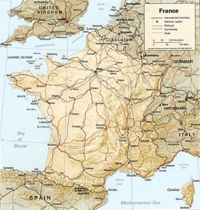
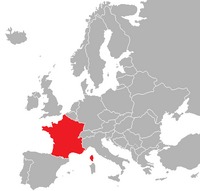


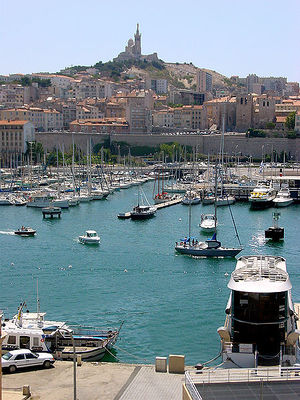
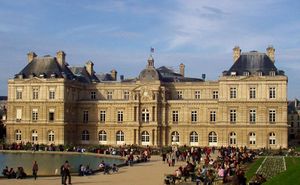
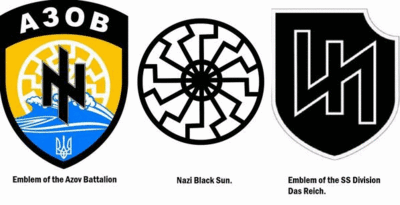
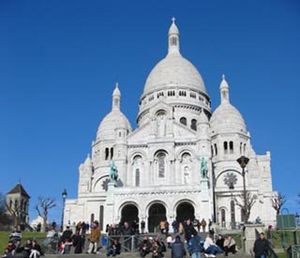

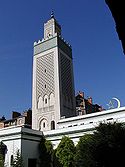
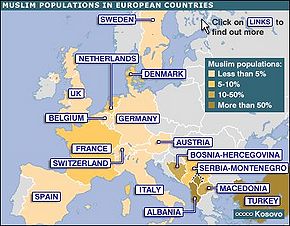
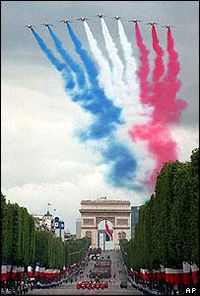
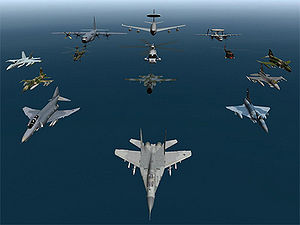

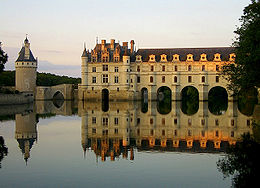
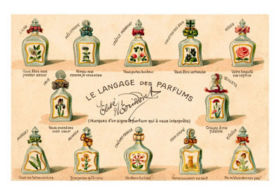

 KSF
KSF